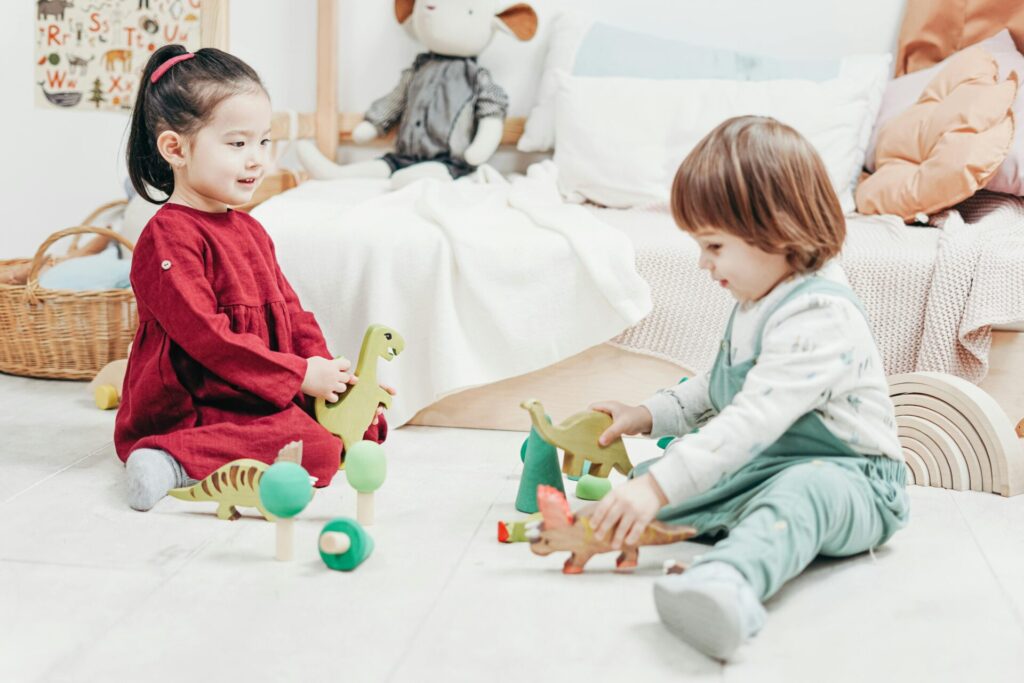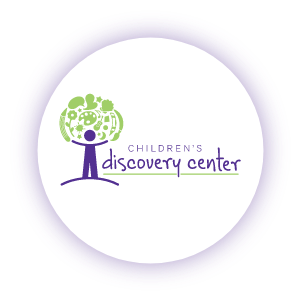
As parents and early childhood educators, we often focus on learning activities to help little ones reach new milestones. But here’s something wonderful: some of the most powerful learning happens during simple playdates! These joyful social interactions are actually rich opportunities for growth and essential life skill development.
At Children’s Discovery Center, we’ve seen that some of our children’s most meaningful learning occurs through play with their peers. Understanding these lessons can help you maximize the developmental benefits of every playdate your child enjoys.
Building Social and Emotional Skills
Playdates serve as a child’s first classroom for social-emotional development, teaching essential skills through natural interactions.
Learning to Manage Emotions
When your child plays with friends, they experience the full range of emotions—joy, frustration, excitement and even disappointment. These moments provide golden opportunities to practice emotional regulation! For example, when your child waits for their turn with a toy, they’re learning patience. And when a block tower falls during a group activity, they’re learning resilience, getting back up and trying again.
This aligns beautifully with our Reggio Emilia approach, which sees children as capable, curious learners. Rather than shielding little ones from minor conflicts, we gently guide them through these instances, helping them build the emotional intelligence they’ll use throughout life.
Developing Empathy
Through play, your child naturally develops empathy as they observe and respond to their friends’ emotions. They start to recognize when a friend looks sad or excited and learn how their actions impact others. It’s amazing to watch as this foundational skill shapes the basis for all their future relationships.
Communication and Language Growth
Playdates create rich environments for language development through meaningful peer interactions.
Practicing Real Communication
Playdates create rich environments for language development through meaningful peer interactions. Children practice expressing ideas, negotiating rules and explaining their thinking. They learn to read facial expressions, body language and tone of voice. These communication skills develop naturally as children work together to build, create and solve problems.
Learning Conflict Resolution
When children disagree about game rules or toy sharing, they’re developing valuable conflict resolution skills. They practice expressing viewpoints, listening to others and finding compromises. These negotiation abilities become the foundation for future leaders and collaborators.
Cognitive Development Through Play
The learning benefits of playdates extend far beyond social skills. A fun afternoon with friends can even support critical thinking and academic readiness.
Problem-Solving Skills
Playdates present countless problems requiring creative solutions. Whether building a fort, creating game rules, or deciding how to include everyone in an activity, children develop critical thinking through authentic challenges. These experiences align with inquiry-based learning, where children’s natural curiosity drives discovery. Working together to overcome play challenges develops analytical skills that transfer to academic settings.
Boosting Creativity
Collaborative play sparks creativity in unique ways. When children combine different perspectives and ideas, they create richer play scenarios. One child’s idea builds on another’s, leading to elaborate games and stories that exceed what one could create alone. This encourages flexible thinking and problem-solving in new, creative contexts.
Developing Independence and Confidence
Playdates support your child’s growing independence through decision-making opportunities and successful social navigation.
Building Decision-Making Skills
During unstructured play, children make countless decisions—choosing activities, resolving conflicts and expressing preferences. These opportunities help children develop confidence in their ability to navigate social situations independently.
Growing Self-Confidence
When children successfully interact with peers, solve problems together and contribute to group play, they develop self-esteem. They learn they are capable, valuable members of their social community. Each positive interaction reinforces their confidence, creating a strong foundation for future social relationships.
Supporting Your Child’s Playdate Success
Understanding playdates’ learning potential helps parents create environments that maximize benefits:
Create Open-Ended Opportunities: Provide materials and spaces that encourage collaborative play. Avoid over-structuring activities, allowing children’s interests to guide interactions.
Practice Gentle Guidance: When conflicts arise, guide children through problem-solving rather than immediately intervening. Support their developing conflict resolution skills.
Celebrate Growth: Recognize the social, emotional and cognitive development occurring during play. Help children reflect on their experiences and growing skills.
The Lasting Impact
The lessons children learn during playdates create lasting benefits:
- Successful academic collaboration
- Leadership abilities
- Emotional intelligence
- Creative problem-solving
- Inclusive worldview
- Confident self-expression
At Children’s Discovery Center, we recognize that play is a child’s most important work. Our commitment to peer interaction opportunities reflects our understanding that life’s most essential lessons often happen when children are simply playing together.
A Summer of Growth and Exploration
As the Toledo area’s leading early childhood educator, Children’s Discovery Center helps children and families grow together. From infant care and preschool to kindergarten Discovery School, our educators are ready to help your family succeed. Contact us today to schedule a visit to one of our five Toledo-area childcare centers. Contact us today to learn more about our Reggio Emilia approach to learning, register your child and tour our facilities.
 419-867-8570
419-867-8570